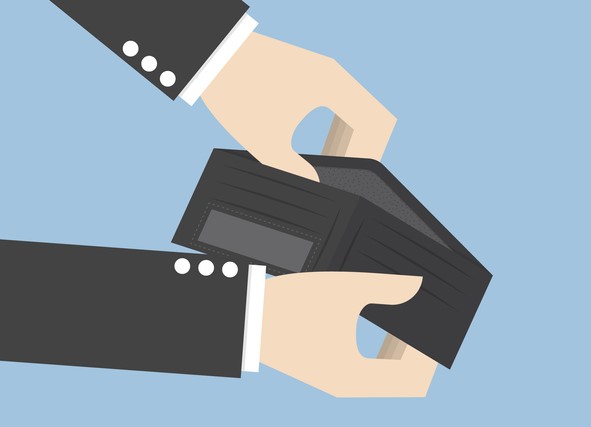Getting help when you can't pay your gas and electric bills
Ray Neal, a debt advisor at the charity StepChange, explains what you can do when you can’t pay your gas and electric bills, and what help is available.

What to do when you cannot pay your gas and electric bills
Since the cost-of-living crisis hit the nation, heating the home has become more expensive than ever, and more and more people are struggling with energy arrears and debt.
Energy bills are ‘priority bills’ because missing or late payments have consequences. However, an organisation like StepChange can help you make a payment plan to avoid being disconnected.
Let your providers know
When it comes to arrears, the first rule is to communicate. Some gas and electricity providers, as well as other utilities like water and broadband, may have special tariffs or arrangements to help with arrears depending on your circumstances. It's not always obvious how to access these so it's always worth talking to your providers as soon as you know you are struggling.
It might seem daunting at first, but your providers are more likely to give you time to pay if you let them know you’re struggling and why.
Reduce your usage
The next thing you can try is to reduce your usage. There are various agencies that can help with budgeting and tips to decrease gas and electricity usage.
Seek help
There might be help available from your local council, or schemes like Fuel Direct from your benefits office if you receive universal credit or other means-tested benefits.
Although charities like StepChange can't provide grants to help pay bills, they can provide further advice around accessing these, as well as help with prioritising the bills that need to be paid first, working out an affordable payment plan, and reducing payments to lower priority debts to help cover costs for utility bills.
They can also help you apply for Breathing Space, a government scheme in England and Wales which gives you a break from interest, fees, and court action for up to 60 days. In Scotland you may be able to apply for a ‘debt moratorium period’ while you set up certain debt solutions. It’s similar to Breathing Space but has different risks and benefits. Although utility bills aren’t included within Breathing Space, it may help you manage additional debts and loans you have.
As always, it’s best to get free debt advice from an organisation that can help you navigate any benefits or drawbacks when it comes to your finances.
Summary
If you’re having money issues, keep up with your priority bills first and foremost. This includes your rent or mortgage, Council Tax, and utilities. Missing payments on these can lead to more serious repercussions vs missing a credit card or personal loan payment.
Create a realistic budget including any repayments to debts, make sure it’s sustainable long-term. Small steps, big rewards.
And finally, ask for help. Ask for help from your creditors, local authority, utility provider, water company, or a debt advice organisation like StepChange. Even just speaking to someone you trust can help tremendously when debt becomes an issue.
About the author
Ray Neal is a debt advisor at StepChange, a charity who offer the widest range of debt help and solutions of any charity in the UK. Their free, impartial debt advice service is tailored help to each client’s circumstance and figure out the best way forward.
See also
What is the Debt Respite Scheme (Breathing Space)?
What types of debt can be included in a DRO, an IVA and bankruptcy?
Images
Getty Images
Publication date
28 May 2024
Any opinion expressed in this article is that of the author and the author alone, and does not necessarily represent that of The Gazette.
